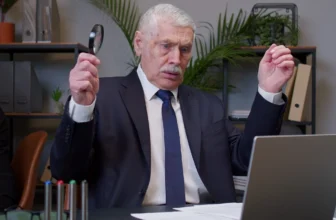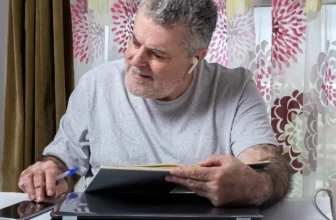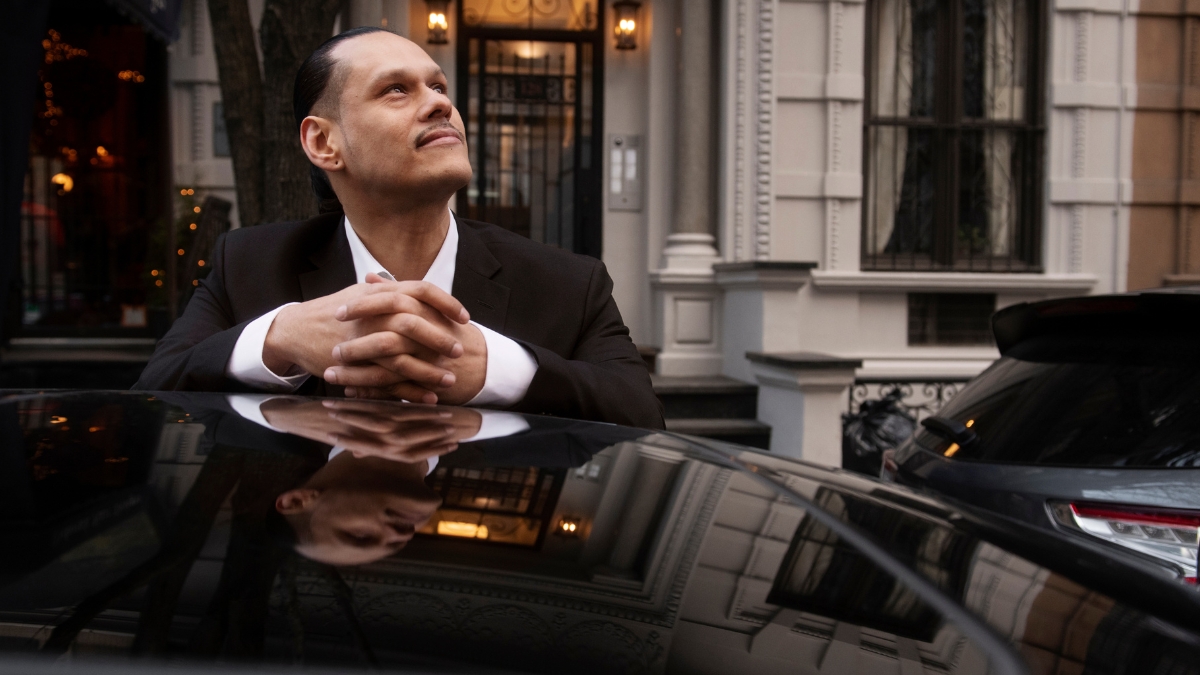
If you have a six-figure income but feel broke, or check your bank account daily despite healthy savings, you don’t have a money problem—you have a mindset problem. Maybe you’ve hit every financial milestone but still feel empty.
You’ve traded your time, health, and relationships for material success. You measure your self-worth by your net worth. The constant anxiety won’t quit regardless of what’s actually in your account. Here’s the truth: true wealth starts in your mind, not your bank.
This guide shows you the psychology behind abundance mindset, practical daily practices for financial wellbeing, and how to shift your mindset and money relationship from scarcity to real wealth consciousness.
What Science Says About Wealthy Mindset
You’ve probably heard someone say “just think positive about money.” That’s not what we’re talking about here.

A wealthy mindset isn’t about pretending problems don’t exist. It’s about how your brain processes financial information and makes decisions. And science backs this up.
Researchers who study scarcity mentality have found something interesting. When you feel like there’s never enough, your brain actually changes how it works. You focus only on immediate problems. You miss opportunities right in front of you. Harvard economist Sendhil Mullainathan calls this “tunneling”—you can only see what’s directly ahead.
Here’s the wild part: this happens regardless of how much money you actually have. Studies show that 54% of people earning over $100,000 per year still report significant financial stress. The number in your bank account isn’t the problem. Your relationship with that number is.
Your brain has something called neuroplasticity. That’s a fancy word meaning your brain can form new patterns. The thoughts you repeat become automatic over time. If you constantly think “I can’t afford this” or “Money always runs out,” those pathways get stronger. But you can build different pathways.
Research from the Greater Good Science Center at UC Berkeley found that people who practice gratitude make better financial decisions. They’re 12% more likely to save money and 20% less likely to make impulse purchases. Gratitude literally changes how you see what you have.
Financial psychology shows us something else important. People with abundance thinking take more calculated risks. They see setbacks as temporary. They build better relationships because they’re not operating from fear. This isn’t magical thinking. It’s about perception leading to different actions.
When you’re stressed about money, your body releases cortisol. High cortisol levels make you worse at planning and decision-making. You grab the quick fix instead of the smart choice. You avoid looking at your finances altogether. The stress itself becomes a bigger problem than the actual situation.
Here’s what matters: wealth mindset and positive thinking are not the same thing. Positive thinking says “everything will work out.” Wealth mindset says “I have the ability to figure this out, and I’ll start with what I already have.”
The research is clear. Your thoughts about money affect your financial behavior. Your financial behavior affects your results. Change the first thing, and you start changing everything else.
The Inner Garden Principle – Your Thoughts Create Your Reality
Think of your mind as a garden. Stay with me here.
Every garden needs tending. If you ignore it, weeds take over. Those weeds are your limiting beliefs. “I’m bad with money.” “Rich people are greedy.” “I’ll never get ahead.” Leave those thoughts unchecked, and they crowd out everything good trying to grow.
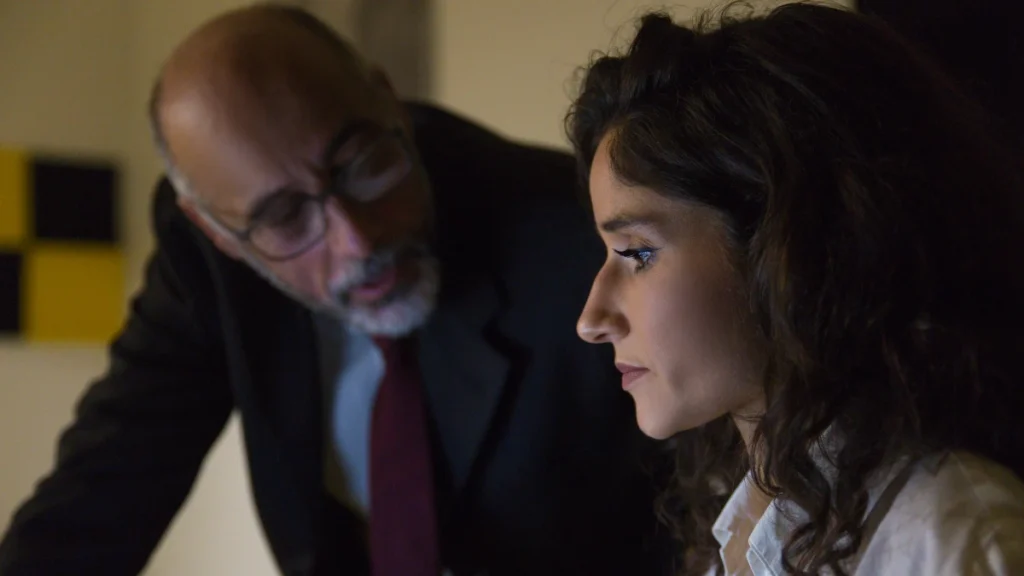
Your outer life mirrors your inner state. Two people can have the exact same income but completely different experiences. One feels broke constantly. The other feels secure. The difference? What’s growing in their mental garden.
This isn’t magical thinking. Let me be clear about that. Thinking positive thoughts won’t make money appear in your mailbox. But here’s what does happen: what you believe changes what you notice, what you try, and how you respond when things go wrong.
Take two people who lose their jobs. Person A thinks: “This always happens to me. I knew it wouldn’t last.” Person B thinks: “This is hard, but I’ve solved problems before.” Same situation. Person A spirals and takes the first desperate opportunity. Person B takes a breath, reaches out to their network, and finds something better. The outer circumstance didn’t determine the outcome. The inner response did.
I know two neighbors in Maui. They owned houses side by side. When developers came offering to buy, one neighbor fought it for years, stressed and angry. The other sold below market value immediately. Why? They wanted peace more than extra money.
Your morning sets the tone. If you wake up and immediately think about what’s wrong, you’re planting weeds. If you take one minute to set an intention—just one word like “enough” or “capable”—you’re planting flowers.
Here’s a simple comparison:
Weeds (Limiting Beliefs):
- “There’s never enough”
- “People like me don’t get those opportunities”
- “If I spend money on myself, something bad will happen”
- “I have to work twice as hard as everyone else”
Flowers (Abundance Beliefs):
- “I have what I need right now”
- “I’m capable of creating opportunities”
- “Taking care of myself helps me show up better”
- “I can work smart and rest”
You don’t have to believe the flowers at first. Just practice noticing the weeds. When you catch yourself thinking a limiting thought, you’ve just pulled a weed. That’s the work. Notice it, acknowledge it, and choose a different thought.
Every day you tend your inner garden, you’re building a wealthy mindset. Not because you’re pretending problems don’t exist. Because you’re choosing what gets to grow in your mind. And what grows in your mind shapes everything else.
Redefining Value – The Diamond Principle

Quick question: Why is a diamond valuable?
Because it’s rare? Not really. Diamonds aren’t that rare. Because it’s useful? A hammer is more useful. Because it’s beautiful? Beauty is everywhere.
Diamonds are valuable because we all agreed they are. That’s it. In 1938, De Beers launched a marketing campaign saying diamonds equal love. Before that, most people got married without diamond rings. De Beers literally created the value out of thin air.
Here’s what that means for you: value is something we assign. And if we collectively assign it, you can personally reassign it.
Think about what you’ve been told is valuable. Big house. New car. Designer clothes. Expensive vacations. Fancy restaurants. The message is everywhere: these things = success = happiness.
But you have power here. You get to decide what’s valuable in YOUR life.
I know someone who turned down a higher-paying job because it would mean missing their kid’s bedtime. Most people thought they were crazy. “You said no to more money?” But this person valued those 30 minutes more than the extra $15,000. Five years later, they have an amazing relationship with their kid and no regrets. They’re not less wealthy. They just valued something different.
Research on time affluence shows that people who feel like they have enough time are happier than people who feel like they have enough money. Let that sink in. Feeling time-rich beats feeling money-rich.
Consumer debt tells another story. Americans carry an average of $6,194 in credit card debt. Much of it comes from buying things for status. Things we think will make us valuable to others. We’ve let marketing departments tell us what matters.
Try this exercise: Write down everything you spent money on last month. Next to each item, write why you bought it. How many purchases were for things you genuinely valued? How many were because you thought you “should” have them?
A $5 homemade meal eaten with people you love can feel richer than a $200 restaurant meal eaten alone. The $200 meal isn’t bad. But if you’re going because you think that’s what success looks like, you’re letting someone else define value for you.
Studies on experiential versus material purchases show something clear: experiences bring more lasting happiness than stuff. Yet we keep buying stuff because we can see it. We can show it. It feels like proof of success.
But here’s the real wealth move: choosing what’s valuable before anyone tells you. Maybe it’s time to make art. Maybe it’s energy for your family. Maybe it’s freedom from debt even if that means a smaller apartment. Maybe it’s learning new skills. Maybe it’s quiet mornings with coffee.
You’re not rejecting ambition. You’re not saying money doesn’t matter. You’re saying: “I decide what matters to me. Not advertisers. Not neighbors. Not social media. Me.”
That’s a wealthy mindset. Knowing what you value and building your life around it. Even when other people think you’re weird for it.
The Creation Principle – Building Wealth Through Making
Walk through an old European town. Look at the buildings. Detailed stonework. Carved doorways. Mosaics that took months to create. The people who built them probably didn’t get rich from it. But they created something lasting. They took pride in what they made.
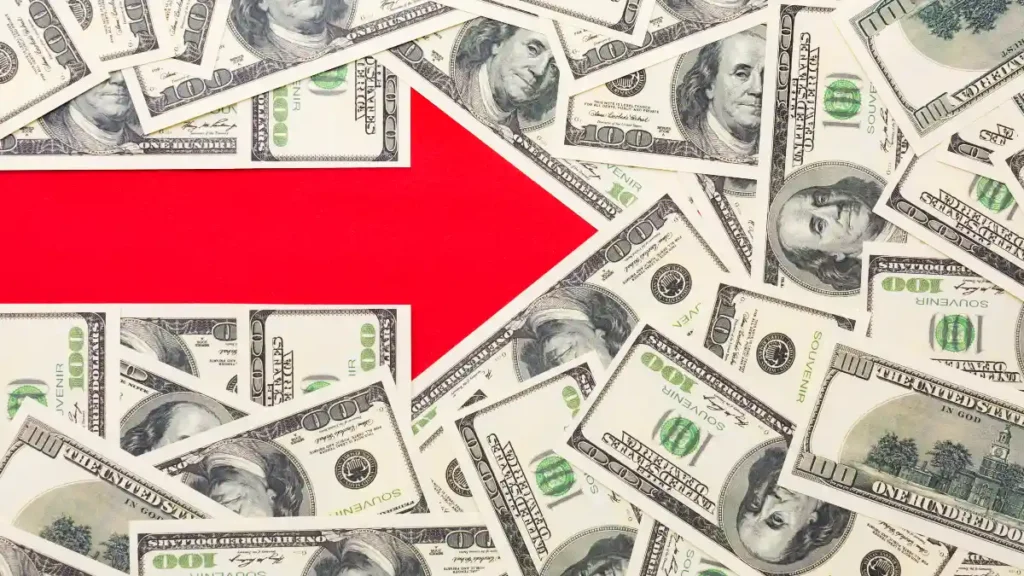
Now look at what we build today. Cheap furniture designed to break in three years. Houses that all look identical. Food engineered to make you crave more. We’ve lost something important: the connection between making things and feeling wealthy.
Anthropologist David Graeber wrote about “bullshit jobs.” Jobs that even the people doing them think are pointless. Meetings about meetings. Reports nobody reads. Work that feels like pretending. When you spend 40 hours a week on something meaningless, you feel poor no matter your salary.
Creating builds wealth consciousness. Not consuming. Creating.
And no, you don’t need to quit your job and become an artist. That’s not what this means. You can create in a hundred small ways:
Cook a meal from scratch instead of ordering delivery. You’re creating nourishment. Grow herbs on your windowsill. You’re creating life. Fix something broken instead of replacing it. Write a letter. Build something with your hands. Learn to play three chords on a guitar.
Research on flow states shows that when you’re fully engaged in creating something, your brain releases the same feel-good chemicals that people spend thousands chasing through shopping or entertainment. Making things makes you happy. And it costs almost nothing.
There’s data backing this up. The DIY movement isn’t just about saving money. Studies show people who regularly engage in creative activities report higher life satisfaction. They feel more capable. More resourceful. More wealthy, even when their income doesn’t change.
Think about two people with the same income. One comes home and watches TV every night. The other spends an hour gardening. After a year, the gardener has fresh vegetables, stronger hands, new skills, and a sense of accomplishment. The TV watcher has watched 365 hours of content they barely remember. Who’s wealthier?
A Gallup poll found that only 33% of American workers feel engaged at work. That means two out of three people spend most of their waking hours on something that doesn’t fulfill them. No wonder people feel broke inside even when their accounts have money.
The Integrity Principle – Who You Are When No One’s Watching
Two people work in the same office. Same job. Same pay.
Person A does exactly what’s required. Nothing more. They cut corners when they can. If nobody’s checking, why bother? They complain about not getting promoted.
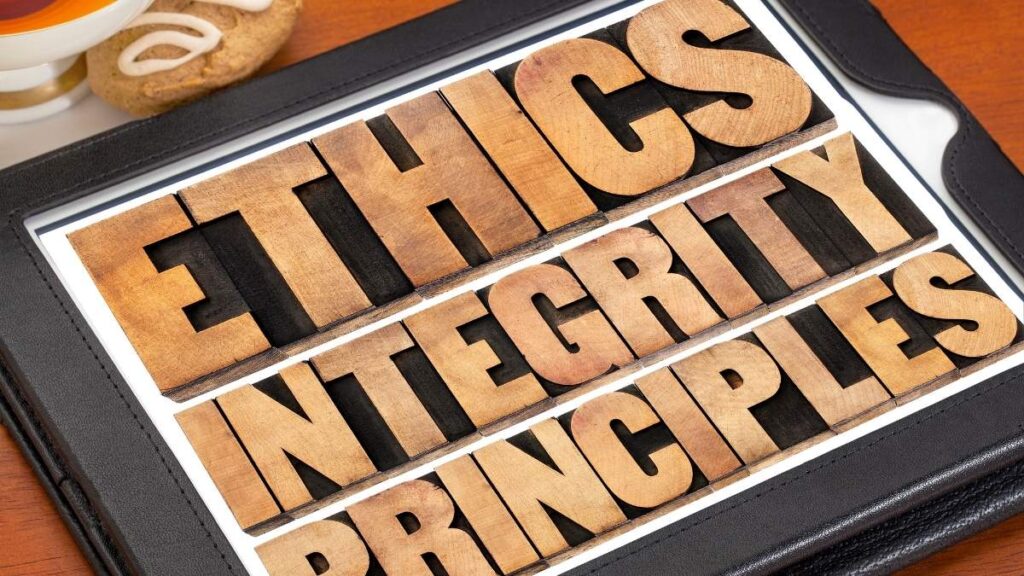
Person B does every task like it matters. Even the boring ones. Even when their boss isn’t watching. They show up early. They help without being asked. They fix small problems before they become big ones.
After two years, Person B gets promoted. Person A is still complaining. “It’s not fair. We have the same experience.”
But they don’t. One person built a foundation. The other just showed up.
That’s the integrity principle. Character-based wealth versus circumstance-based wealth. One lasts. The other doesn’t.
You’ve heard “fake it till you make it.” Sometimes that works. But here’s what fails: faking it without building the real skills underneath. Getting lucky without developing discipline. Having money without having the character to keep it.
Statistics on lottery winners prove this. About 70% of lottery winners end up broke within a few years. They got the money without the foundation. They hadn’t built the discipline, the knowledge, the decision-making skills, or the identity of someone who maintains wealth.
Compare that to self-made millionaires. Research shows they have high levels of conscientiousness. They finish what they start. They do quality work even in small tasks. They keep promises to themselves. Not because anyone’s watching. Because that’s who they are.
Studies on income and skill development show a clear link. Every skill you master increases your earning potential by an average of 8-12%. But more than that, it increases your confidence. Your sense of capability. Your wealthy mindset.
The Six Feelings of True Wealth (How to Embody Abundance)
Forget the number in your bank account for a minute. Real wealth is a feeling. Actually, it’s six feelings. And you can practice them right now, regardless of your financial situation.

Peace
Peace means not stressing over every little thing. It’s trusting that one unexpected expense won’t destroy you. Even if you have to adjust, you’ll figure it out. Wealthy people don’t panic over a $200 car repair.
Not because $200 is nothing to them. Because they trust their ability to handle it. When you have peace, money problems become situations to solve instead of catastrophes. Your nervous system stays calm, which means you make better decisions.
Tips to Practice Peace:
- When a money worry pops up, take three deep breaths before reacting
- Ask yourself: “Will this matter in five years?” to get perspective
- Keep a list of past money problems you’ve already solved as proof you’re capable
- Set a specific “worry time” for 15 minutes a day, then let it go outside that window
- Practice the phrase: “I’ll figure this out like I always do”
- Notice the difference between a real emergency and just an inconvenience
Security
Security isn’t having a million dollars in the bank. It’s trusting that your needs will be met, even when things change. You’ve survived every challenge so far. You’ve adapted before. You’ll adapt again.
People with security don’t clutch everything tight because they believe in their resourcefulness. They can be generous because they trust there’s enough. This feeling comes from evidence—looking back at what you’ve already handled.
Tips to Build Security:
- Write down every financial challenge you’ve survived (job loss, unexpected bills, tough years)
- Start an emergency fund, even if it’s just $20 a month—the habit matters more than the amount
- Learn one new skill every quarter that could help you earn money if needed
- Build relationships with people who would help you in a crisis (and who you’d help too)
- Review your finances weekly so nothing surprises you
- Remember: security comes from adaptability, not from having everything controlled
Spaciousness
This is time affluence. Room to breathe. Hours where you’re not rushing to the next thing. Moments where you can just exist without producing or achieving or earning.
Research shows that feeling time-rich makes you happier than feeling money-rich. Most people are starving for spaciousness. They’re overscheduled, overcommitted, and overwhelmed. Real wealth includes having time to think, rest, and create without pressure.
Tips to Create Spaciousness:
- Protect one hour per week that’s completely unscheduled—no plans, no productivity
- Practice saying “no” to things that don’t align with your values
- Build buffer time between appointments instead of back-to-back scheduling
- Wake up 20 minutes earlier to have unhurried morning time
- Audit your commitments: what can you quit or reduce?
- Notice how wealthy you feel when you’re not rushing—that’s the goal
Gratitude
Gratitude isn’t just being thankful for the big things. It’s finding wealth in the smallest details. The coffee that’s hot. The friend who texts you.
The fact that your body woke up this morning. Studies show people who practice gratitude make better financial decisions—they’re 12% more likely to save and 20% less likely to impulse buy. Gratitude shifts your focus from what’s missing to what’s here. And what you focus on grows.
Tips to Practice Gratitude:
- Write down three specific things you’re grateful for every morning (not generic ones)
- When you catch yourself complaining, find one thing to appreciate about the same situation
- Thank people out loud for small things they do—notice how it changes the energy
- Do a weekly “wealth inventory”: list everything you have that money can’t buy
- Practice gratitude for problems that aren’t happening (your car started, you’re not sick, etc.)
- Before buying something, feel grateful for what you already have first
Generosity
Generosity is having enough to share without keeping score. It’s buying coffee for the person behind you. Tipping well. Giving your time. Sharing your knowledge. Helping without expecting anything back. This doesn’t mean being broke trying to help everyone.
It means giving from overflow, not obligation. When you give, you’re telling yourself: “I have enough.” Your subconscious believes what you do more than what you say.
Tips to Practice Generosity:
- Give something away this week—money, time, knowledge, or help
- Tip better than you think you can afford (if you can pay the bill, add 20%)
- Share knowledge freely instead of hoarding it for competitive advantage
- Help someone without telling anyone about it—just for you and them
- Create a “generosity budget” even if it’s $10 a month
- Notice the feeling of abundance that comes after giving—that’s the real wealth
Creation
Creation means you make things instead of just consuming them. You cook instead of ordering. You build instead of buying. You write, draw, garden, or fix things with your hands. Creating connects you to abundance because you prove to yourself: “I’m capable.” You’re not just a wallet.
You’re a person who can transform raw materials into something valuable. Even small acts of creation—making breakfast, organizing a closet, planting seeds—build wealth consciousness.
Tips to Practice Creation:
- Make one thing every day, even if it’s just your bed or a simple meal
- Learn a hands-on skill: cooking, gardening, basic repairs, crafting
- Spend 30 minutes creating before you consume (scroll, watch, shop)
- Fix something broken instead of immediately replacing it
- Start a small project you can finish in a week to build your creator identity
- Notice how different you feel after making something versus buying something
The Wealthy Mindset Daily Practice (8 Actionable Steps)
You can’t think your way into a wealthy mindset. You have to practice it. These eight steps take about 30 minutes total. Do them daily and watch how your relationship with money changes.
1. Morning Intention (2 minutes)
Before you check your phone, sit up and close your eyes. Choose one word for the day. Not a goal. A feeling. “Enough.” “Capable.” “Peaceful.” “Abundant.” Say it three times. Feel it in your body. This sets your filter for the entire day.

What this does: Your brain looks for evidence of whatever you focus on. If your word is “enough,” you’ll notice what you have instead of what’s missing.
2. Value Check-In (3 minutes)
Look at your calendar for today. Ask: “Does this align with what I said was valuable?” If you said family matters but you’re working through dinner again, you’re lying to yourself. Either change your schedule or admit money is more valuable to you than family right now. Both are okay. But be honest.
What this does: Integrity between values and actions builds confidence. Misalignment creates guilt and feeling broke inside.
3. Create Something (15 minutes)
Make your coffee instead of buying it. Cook eggs. Write three sentences. Sketch something. Pull weeds. Organize one drawer. Create before you consume. This is non-negotiable.
Quick creation ideas:
- Handwrite a short note to someone
- Make a simple breakfast from scratch
- Rearrange furniture in one small area
- Start seeds in a cup
- Fix something small that’s been broken
4. Do One Thing With Excellence (5 minutes)
Pick one small task today. Do it perfectly. Make your bed with hospital corners. Wash one dish until it shines. Write one email with zero typos. Send one text with thoughtful words. Not for anyone else. For you.
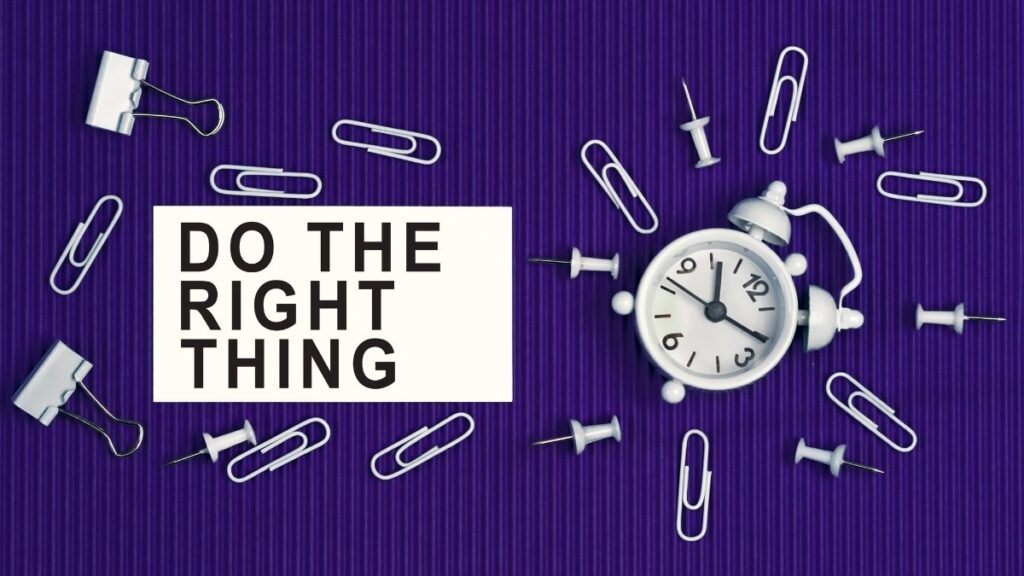
What this does: Excellence in small things builds the character that handles big things. This is your integrity practice.
5. Gratitude Accounting (3 minutes)
Don’t just list generic things. Find three specific pieces of wealth you didn’t notice before. “My neighbor smiled at me.” “My car started on the first try.” “I know how to read, so I can learn anything.” Get specific. Feel it.
Journal prompts:
- What’s something free that brought me joy today?
- What problem am I NOT dealing with right now?
- What skill do I have that others would pay to learn?
- What relationship makes me feel wealthy?
6. One Generous Act (Variable time)
Give something without keeping score. Pay for someone’s coffee. Compliment a stranger. Share useful information. Offer help. Tip more than expected. Give your time to someone who needs it. Do it anonymously if possible.
What this does: Generosity tells your subconscious “I have enough.” Your brain believes what you do, not what you think.
7. Evening Abundance Scan (3 minutes)
Before bed, ask yourself: “Where did I see abundance today?” Not just money. Where did you see generosity? Beauty? Opportunity? Help? Luck? Train your brain to look for wealth everywhere.

What this does: You’ll start seeing opportunities you’re currently blind to. Abundance becomes your default filter.
8. Decision Review (2 minutes)
Think about any money decisions you made today. Buying lunch. Saying yes to plans. Skipping a purchase. Ask: “Did I decide from abundance or fear?” Fear decisions are tight, reactive, and leave you feeling small. Abundance decisions feel spacious, even when you choose not to spend.
Decision framework:
- Abundance: “I’m choosing this because it aligns with my values”
- Fear: “I better grab this before it’s gone”
- Abundance: “I don’t need this right now”
- Fear: “I can’t afford this” (while feeling shame)
Beginner version: Start with just steps 1, 3, and 5. Add others as the habit builds.
Advanced version: Add a weekly money meeting with yourself. Review spending. Celebrate wins. Adjust based on values.
Common Wealthy Mindset Myths (What This Isn’t)
Let’s clear something up. A wealthy mindset doesn’t mean you ignore your actual finances.
This isn’t about thinking positive while your credit card debt grows. It’s not about manifestation without action. It’s not about pretending systemic inequality doesn’t exist. And it’s definitely not about toxic positivity where you plaster a smile over real problems.

Here’s what a wealthy mindset actually is: a foundation that makes your practical financial moves more effective.
Someone with an abundance mindset AND a budget will stick to that budget better than someone with a scarcity mindset and a budget. Why? Because they’re not operating from panic. They’re making choices from a place of “I have enough, and I’m being strategic” instead of “Everything is scarce, and I’m terrified.”
You can be a minimalist and financially ambitious. These aren’t opposites. Minimalism is often about having less stuff so you have more freedom. That’s abundance thinking. You’re choosing what’s valuable to you (freedom, space, time) over what advertisers say is valuable (more stuff).
Here’s the balance point: Work on your mindset while you work on your money skills. Learn to budget. Pay off debt. Invest. Build emergency funds. Do all the practical things. But do them from a place of abundance instead of desperation. The actions might look similar, but the energy behind them changes everything.
And yes, let’s acknowledge privilege and systemic factors. Some people start with advantages others don’t have. Racism, sexism, ableism, and economic inequality are real. A wealthy mindset doesn’t erase these barriers. But it does help you work with what you actually have instead of being paralyzed by what you don’t have.
Two people facing similar barriers will have different outcomes based on mindset. Not because thinking positive solves systemic problems. But because one person sees possibilities while the other sees only walls. Both are dealing with real barriers. One is also looking for cracks in those walls.
A wealthy mindset isn’t magical thinking. It’s practical thinking from a foundation of “I’m capable” instead of “I’m helpless.” Big difference.
Conclusion
True wealth isn’t the number in your account. It’s how you feel about that number. It’s the peace you carry regardless of circumstances. It’s the security that comes from trusting yourself. It’s the spaciousness in your schedule. The gratitude in your day. The generosity in your actions. The creation in your hands.
These six feelings—peace, security, spaciousness, gratitude, generosity, and creation—are available to you right now. You don’t need permission. You don’t need more money first. You need to practice them intentionally.
The daily practices we covered aren’t busywork. They’re rebuilding your relationship with wealth from the inside out. Every morning intention. Every small act of creation. Every moment of gratitude. Every generous gesture. You’re proving to yourself that you’re already wealthier than you thought.
This foundation enables sustained material wealth. People who build wealth from the outside in often lose it. People who build it from the inside out tend to keep it and grow it. Because they’ve become the kind of person wealth sticks to.
You’re already wealthier than you think. You have skills money can’t buy. Relationships that matter. The ability to learn. The capacity to create. The power to choose what’s valuable. That’s real wealth.
Start today: Choose one feeling from the Six Feelings of True Wealth and spend the next week practicing it intentionally. Just one. Notice how your relationship with money, time, and opportunities begins to shift. Watch how differently you show up when you feel abundant instead of lacking.
A wealthy mindset isn’t built overnight, but every day you practice abundance thinking, you’re investing in the only wealth that can never be taken from you—your internal state of being. That’s the foundation everything else builds on.
The garden is yours to tend. Start planting.




